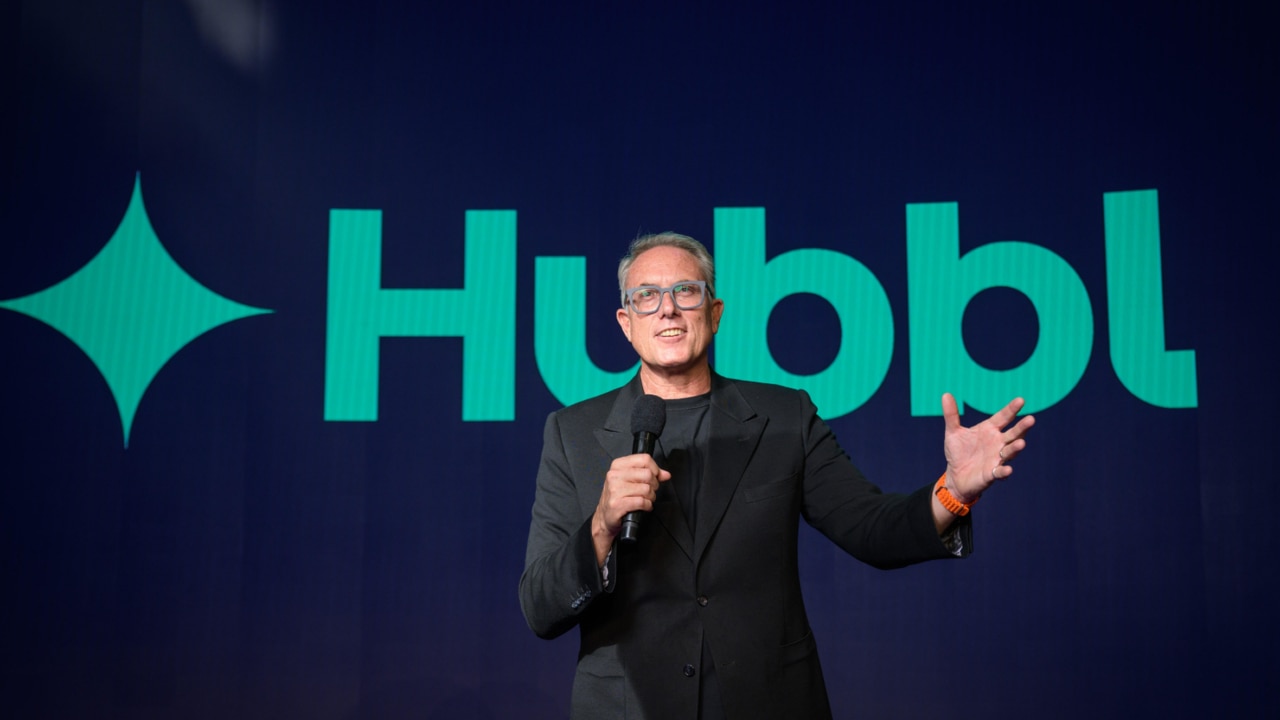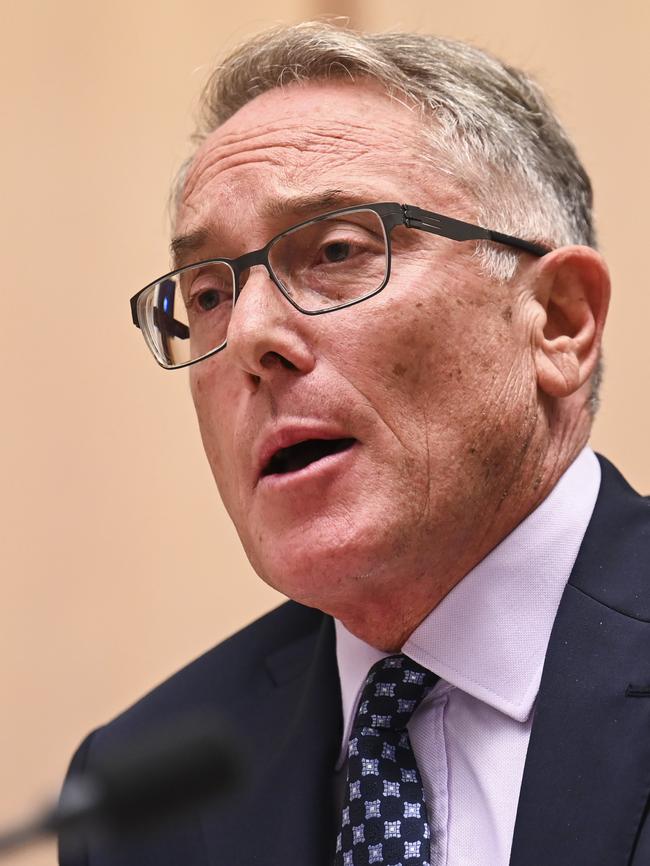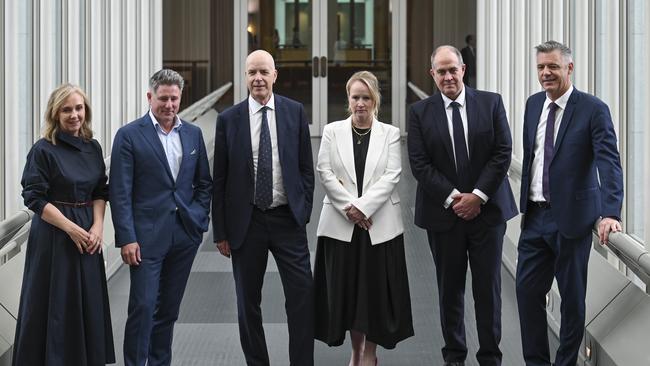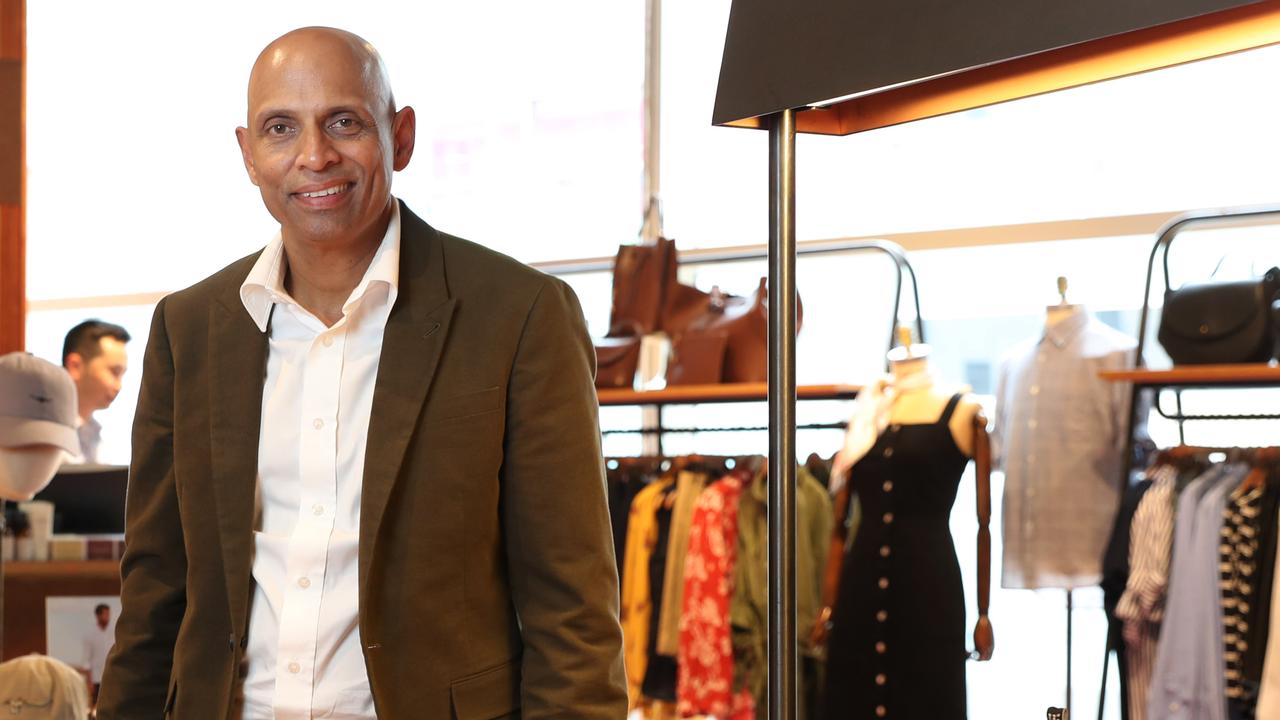Foxtel boss Patrick Delany has criticised the anti-siphoning and prominence Bill that ‘removes viewers’ control’
The nation’s television executives have voiced their concerns over Labor’s Bill that could change the way consumers view content on their smart TVs and devices.

Business
Don't miss out on the headlines from Business. Followed categories will be added to My News.
Foxtel Group chief executive officer Patrick Delany has told a Senate hearing that consumers should be in control of what they want to watch, and warned of the dangers of legislating to put certain apps ahead of the queue on devices such as smart TVs.
Addressing the Senate, Environment and Communications Legislation Committee in Canberra about the Labor government’s anti-siphoning and prominence Bill, Mr Delany said consumers should not get a “distorted outcome” when searching for content.
“If you’re going to put all of the free (content) first, what happens if I search an overseas news story,” he told the committee.
“Am I going to get everything from SBS, everything from the ABC, everything from Nine, Seven, Ten before CNN and everything else?”
Under the proposed Bill, consumers who view content on their smart TVs and devices will default to free-to-air Australian services including taxpayer-funded broadcasters ABC and SBS.
Mr Delany said regardless of whether a consumer is watching free or paid content, preference should not be given to free-to-air services when scrolling for something to watch.
“Any proposal to alter search results and app placement in favour of free to air services undermines a customer’s right to choose. Customers spend thousands of dollars on their TV devices,” he said.
“What we want to do is deliver the best experience for the customer and that’s been our business model for over three decades.”

Television executives from the free-to-air networks including ABC, SBS, Seven, Nine and Ten also addressed the committee about the prominence and anti-siphoning Bill.
Free TV Australia chairperson Greg Hywood said there are “some fundamental technology issues relating to prominence (that) are misunderstood”.
“Access to free TV matters, free, trusted news underpins our democracy, free sport is a social connector and encourages our kids to be active and free entertainment reflects what it is to be an Australian,” he said.
“Local free TV services are getting harder to follow, multinational TV manufacturers preference subscription services that are paid to put on the home screen.”
This week Mr Delany launched the new streaming aggregator platform Hubbl, which hosts 18 streaming apps on one interface, making it easier for consumers to view all content and make their own choices about what they want to watch.

Free-to-air broadcasters argued that it shouldn’t be up to the manufacturers of TVs to determine what apps and services are shown to viewers first.
Among those to voice their concerns at the committee hearing included Nine Entertainment chief executive officer Mike Sneesby, Ten Network boss Beverley McGarvey, Seven West Media CEO James Warburton, Free TV Australia CEO Bridget Fair and chairman Greg Hywood.
SBS managing director James Taylor criticised the control held by manufacturers who, he said, could essentially dictate what consumers view.
“It’s frankly scandalous that these massive global tech firms can unilaterally insert themselves as gatekeepers between Australians and their free Australian content, trusted news and information services that have been intentionally developed and underpinned by decades of public policy,” he said.
ABC managing director David Anderson said: “The Bill should amend and bring forward the commencement of the prominence requirements.
“Currently they will not take effect until 18 months after the royal assent and will only apply to TVs sold after that date.”
He also told the hearing the “second weakness” in the Bill is that it fails to allow search and recommendations as minimum prominence requirements.
Netflix director of business development Ben Cox also criticised the proposed legislation.
He said it fails to allow manufacturers to “customise the home screen to reflect viewer preferences.”
Mr Cox said it did not “reflect the commitment to not mandate positioning of tiles or apps.”
News Corp, publisher of The Australian, has a 65 per cent stake in Foxtel, with the remaining 35 per cent owned by Telstra.
More Coverage
Originally published as Foxtel boss Patrick Delany has criticised the anti-siphoning and prominence Bill that ‘removes viewers’ control’





